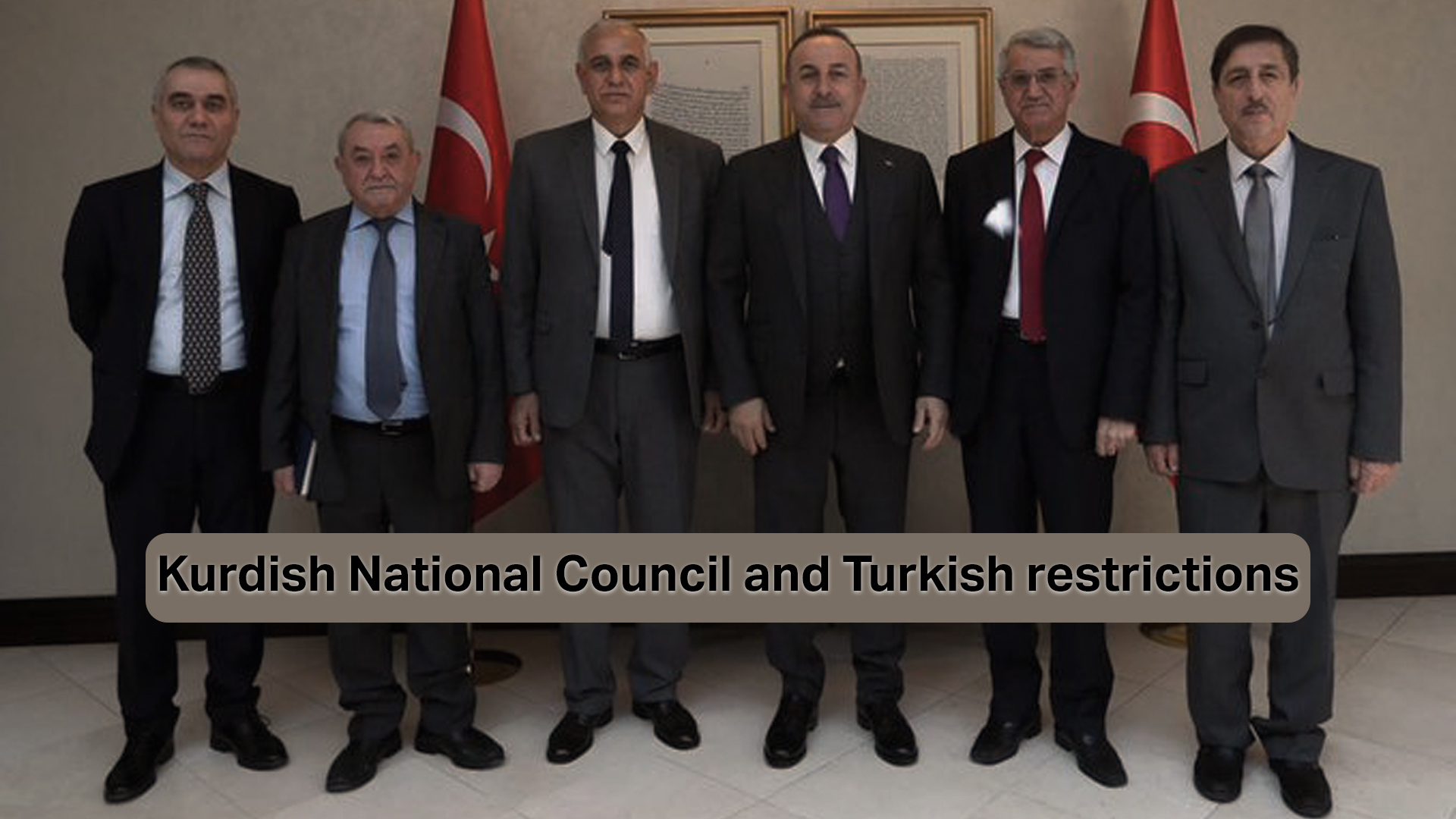Kurdish National Council and Turkish restrictions

Parties involved within the ranks of the Kurdish National Council in Syria (ENKS) continue their endeavor to preserve the personal gains that they have achieved over the past years from the Syrian crisis, and the changes that the region of north and east Syria have recently undergone, have a clear impact on the ENKS to keep staying as a spectator and not take any steps that may eventually lead to disqualification and to affect its inner structure.
The recent Turkish aggression on a neighborhood in the city of Qamishli on October 9, which resulted in three civilians to lose lives, had an internal impact on the ENKS. Of course, the Council, by its nature, is divided into two prominent currents, the Kurdistan Democratic Party – Syria (PDK-S), which represents the approach, policy and the decision of the Kurdistan Regional Government in north Iraq, and the Kurdistan Yekiti Party – Syria (PYKS), which represents the opposition Syrian National Coalition in Istanbul, in addition to the presence of some other parties that support this current, most notably the Kurdish Equality Party in Syria, the Kurdish Reform Movement Party in Syria, and the Kurdistan Democratic Unity Party in Syria. These five parties represent the governing body of the ENKS.
However, as we have said, the increasing impact as a result of the changes witnessed in the regions of northeastern Syria, the Turkish escalation, keeping silence and not issuing any statements despite questions by the popular base, led to the emergence of a conflict within the ENKS ranks. Member of the presidential body of the ENKS and Secretary of the Kurdish Equality Party in Syria, Ne’mat Daoud broke the silence and visited the mourning tent of the three civilian victims in Qamishli city. This step was remarkable in clarifying the position of the ENKS parties and their policies towards the changes taking place in the region. Moreover, this step led to a clear weakness in the structure of the ENKS in making decisions.
However, these moves were quickly confronted by an urgent invitation by Turkish officials to prominent leaders of the ENKS for an urgent and secret visit to Turkey and to provide clarifications about its policies in northeastern Syria, which had carried indications regarding their rejection of the attacks launched by the Turkish state.
The Turkish state has also sent veiled messages to the ENKS regarding the existence of a Kurdish alternative within the Coalition that can be relied upon, which was the Kurdish Independents League, the matter led to a secret agreement between the ENKS and the Turkish state which stipulated the ENKS not to establish relations with any Syrian Kurdish entities outside its framework. By this, the Turkish state is exerting some kind of pressure on the ENKS to bring it back to the path that was set for it, which is to emphasize the Turkish role in the region and reject all policies issued by the Autonomous Administration in north and east Syria.
Emphasis on the return of the ENKS to its previous path, the leader of the PDK-S and member of the opposition National Coalition, Abdulhakim Bashar, called for the Sere Kaniye (Ras al-Ain) IDPs to return to their homes and villages, so that lifting terrorism and displacement imposed on the Turkish state by the civil society.
With the aim of distracting the inner house of the ENKS and ignoring the internal demands to hold the general conference for fear of the current leaders to lose their positions, the ENKS calls for a general conference of the Syrian opposition as a whole similar to the demands that had been demanded by the Syrian Democratic Council (SDC) with the aim of thwarting the efforts launched by the SDC.




